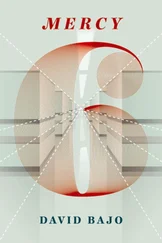Andrea Dworkin - Mercy
Здесь есть возможность читать онлайн «Andrea Dworkin - Mercy» весь текст электронной книги совершенно бесплатно (целиком полную версию без сокращений). В некоторых случаях можно слушать аудио, скачать через торрент в формате fb2 и присутствует краткое содержание. Жанр: Старинная литература, на английском языке. Описание произведения, (предисловие) а так же отзывы посетителей доступны на портале библиотеки ЛибКат.
- Название:Mercy
- Автор:
- Жанр:
- Год:неизвестен
- ISBN:нет данных
- Рейтинг книги:3 / 5. Голосов: 1
-
Избранное:Добавить в избранное
- Отзывы:
-
Ваша оценка:
- 60
- 1
- 2
- 3
- 4
- 5
Mercy: краткое содержание, описание и аннотация
Предлагаем к чтению аннотацию, описание, краткое содержание или предисловие (зависит от того, что написал сам автор книги «Mercy»). Если вы не нашли необходимую информацию о книге — напишите в комментариях, мы постараемся отыскать её.
Mercy — читать онлайн бесплатно полную книгу (весь текст) целиком
Ниже представлен текст книги, разбитый по страницам. Система сохранения места последней прочитанной страницы, позволяет с удобством читать онлайн бесплатно книгу «Mercy», без необходимости каждый раз заново искать на чём Вы остановились. Поставьте закладку, и сможете в любой момент перейти на страницу, на которой закончили чтение.
Интервал:
Закладка:
freedom, a phenomenon o f freedom incarnate as it were, for the
rapist o f course, presumed male, presumed the normative
human. But certainly by now the psychological resonances o f
rape for the raped can best be dealt with in a therapeutic forum so
that the individual’s appreciation o f sex will not be distorted or
diminished— a frequent consequence o f rape that is a real
tragedy. The mechanics o f the two, rape and intercourse, have
an apparent likeness, which is unfortunate and no doubt
confusing for those insufficiently sex-positive. One is the other,
exaggerated, although, o f course, we do not know —pace St.
Augustine— which came first. St. Augustine contends that there
was sexual intercourse in the Garden but without lust, which he
saw as debilitating once he stopped indulging in it. O f course, we
all get older. The philosophical problem is one o f will. Is will
gendered? Clearly Nietzsche’s comprehension o f will never took
into account that he could be raped. Sade postulated that a
woman had a strong will— to be raped and otherwise hurt. It is
the governing pornographic conceit, indistinguishable from a
will to have sex. The problem o f female freedom is the problem
o f female will. Can a woman have freedom o f will if her will
exists outside the whole rape system: if she will not be raped or
potentially raped or, to cover Sade’s odd women, if she will not
rape. Assuming that the rapist qua rapist imposes his will, can
any woman be free abjuring rape, her will repudiating it, or is
any such will vestigial, utterly useless on the plane o f human


reality. Rape is, in that sense, more like housework than it is
like intercourse. He wants the house clean. She does not want
to clean it. Heterosexual imperatives demand that she bend her
will to his. There is, o f course, a sociology to housework
while there is only a pathology to rape. I am dignifying the
opposition here considerably by discussing the question o f
rape at all. Housework, as I showed above, has more to do
with wom en’s daily, ordinary bending o f will to suit a man. I
object to tying rape to wom en’s equality, in either theory or
practice, as if rape defined wom en’s experience or determined
w om en’s status. Rape is a momentary abrogation o f choice.
At its worst, it is like being hit by a car. The politicizing o f it
creates a false consciousness, one o f victimization, and a false
complaint, as if rape is a socially sanctioned male behavior on a
continuum o f socially expressed masculinity. We need to
educate men while enhancing desire. For most men, rape is a
game played with the consent o f a knowledgeable, sophisticated partner. As a game it is singularly effective in amplifying
desire. A m plifying desire is a liberatory goal. We are stuck, in
this epoch, with literalists: the female wallowers and the
feminist Jacobins. It is, o f course, no surprise to see a schizoid
discourse synthesized into a synthetic rhetoric: “ I” the raped
becomes “ I” the Jacobin. As the Jacobins wanted to destroy all
aristocrats, the feminist Jacobins want to destroy all rapists,
which, if one considers the varieties o f heterosexual play,
might well mean all men. They leave out o f their analysis
precisely the sexual stimulation produced by rape as an idea in
the same w ay they will not acknowledge the arousing and
transformative dimensions o f prostitution. To their reductive
minds prostitution is exploitation without more while those
o f us who thrive on adventure and com plexity understand that
prostitution is only an apparent oppression that permits some
women to be sexually active without bourgeois restraints.
Freedom is implicit in prostitution because sex is. Stalinists on


this issue, they see the women as degraded, because they believe
that sex degrades. They will not consider that prostitution is
freedom for women in exactly the same way existentialists
postulated that rape was a phenomenon o f freedom for men—
striking out against the authoritarian state by breaking laws and,
in opposition to all the imperatives o f a repressive society, doing
what one wants. They w on’t admit that a prostitute lives in
every woman. They w on’t admit to the arousal. Instead, they
strategically destroy desire by calling up scenarios o f childhood
sexual abuse, dispossession, poverty, and homelessness. Even
the phallic woman o f pornography has lost her erection by the
end o f the list. Rape as idea and prostitution as idea are o f
inestimable value in sexual communication. We don’t need the
Jacobins censoring our sexual souls. Meanwhile, in the academy
our influence grows while the Jacobins are on the streets,
presumably where they belong if they are sincere. I will keep
writing, applying the values o f agency, nuance, and ambiguity
to the experiences o f women, with a special emphasis on rape
and prostitution. I have no plans to write about the Holocaust
soon, although, I admit, I am increasingly irritated by the
simple-minded formulations o f Elie Wiesel and his ilk. Kvetch,
kvetch. After I get tenure, I will perhaps write an article on the
refusal o f Holocaust survivors to affirm the value o f the
Holocaust itself in their own creative lives. Currently I want
those who are dogmatic about rape and other bad things to keep
their moralisms posing as politics o ff my back and out o f my
bed. I don’t want them in my environment, my little pond. I
w on’t have m y students reading them, respectfully no less, or
m y colleagues inviting them here to speak, to read, to reproduce
simplicities, though not many want to. I like tying up my lover
and she likes it too. I will not be made to feel guilty as if I am
doing something violative. I was that good girl, that obedient
child. Feminism said let go. Y ou can do what a man does. I like
tying her wrists to the bed, I like gagging her, I like dripping hot
w ax on her breasts. It is not the same as when a man does it. She


and I are equals, the same. There is no moral atrocity or political
big deal. I like fantasizing. I like being a top and I like bringing
her to orgasm although I rarely have one myself. I like the sex
magazines, the very ones, o f course, that the Jacobins want to
censor, except for the fact that these magazines keep printing
pictures o f the Jacobins as if they are, in fact, Hieronymous
Bosch pin-ups. One does get angrier with them. One does want
Читать дальшеИнтервал:
Закладка:
Похожие книги на «Mercy»
Представляем Вашему вниманию похожие книги на «Mercy» списком для выбора. Мы отобрали схожую по названию и смыслу литературу в надежде предоставить читателям больше вариантов отыскать новые, интересные, ещё непрочитанные произведения.
Обсуждение, отзывы о книге «Mercy» и просто собственные мнения читателей. Оставьте ваши комментарии, напишите, что Вы думаете о произведении, его смысле или главных героях. Укажите что конкретно понравилось, а что нет, и почему Вы так считаете.












